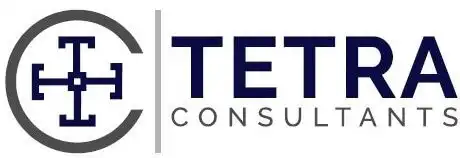Malaysia
Malaysia Exemption of Manufacturing License: A Complete Guide for Foreign Investors

Contact Us
- Malaysia is considered to be one of the most attractive destinations in Southeast Asia for foreign manufacturing investment. The country has a strong industrial base, strategic geographic location, as well as business-friendly investor policies, and continues to attract multinational producers from across the world, allowing them to register company in Malaysia. However, under the Industrial Coordination Act 1975 (ICA) of Malaysia, specific production activities require businesses to obtain a manufacturing license from the Ministry of Investment, Trade, and Industry (MITI). Not all manufacturers follow this requirement, and some companies qualify exemptions that enable them to start their operations quickly. In this blog, we will study the Malaysia Exemption of Manufacturing License, what the exemption entails, who is qualified for it, and how Tetra Consultants can help you through this.
What is a manufacturing license in Malaysia?
- A manufacturing license in Malaysia is a compulsory business permit that is issued by the Malaysian Investment Development Authority (MIDA) under the Industrial Coordination Act (ICA) 1975. This license authorizes companies to legally engage in production activities within the country.
- A production activity is defined as the procedure of transforming raw materials or components into finished goods for sale. This license also ensures that the companies are able to operate within the industrial development framework of Malaysia, and adhere to quality, environmental, as well as labor obligations.
Who qualifies for the Malaysia exemption of manufacturing license?
- Companies in Malaysia qualify for exemption from the manufacturing license if they are not able to meet either of the following requirements
- Shareholders’ funds of RM2.5 million or more
- 75 or more full-time paid employees.
- Instead of a full license, companies can apply for a “Confirmation letter for exemption from manufacturing license (ICA10) from MIDA, which enables them to operate legally in the production sector.
Specific criteria for exemption
- The company should have fewer than 75 full-time employees
- Paid-up capital should be at least RM500,000
- Shareholders’ fund should not be more than RM 2.5 million
- If a company exceeds either threshold, then it should apply for a full manufacturing license
- Full-time employees consist of personnel working more than 6 hours a day, 20 days a month, for a period of at least 12 months. This consists of directors involved for operations, sales, maintenance, and engineering
Application procedure for the Malaysia exemption of manufacturing license
- The application procedure to apply for the Malaysia exemption is a simple and straightforward process. Here is how Tetra Consultants helps you:
Step 1- Initial consultation and confirm eligibility
- Tetra Consultants conducts an initial consultation, where our team ensures that the shareholders’ funds of your company does not exceed RM 2.5 million, and employs fewer than 75 full-time paid employees. This consists of all the controlling employees as well as directors, paid for operational roles.
Step 2- Prepare documentation
- Tetra Consultants will collect the following documents:
- SSM company profile
- List of machinery and equipment
- Business plan and company profile
- Valid business license from the local authority
- Latest audited business accounts and management reports
Step 3- Register on the portal
- While preparing the documents, our team will assist in registering your company on the InvestMalaysia portal.
Step 4- Complete the application
- Our team will fill out the ICA10 exemption application form online and will upload all the supporting documents.
Step 5- Review and approval
- Once all the documents are completed and submitted, MIDA will conduct an initial review and will issue an interim approval, usually within 6-8 weeks. Final approval, that is, the exemption letter, will be issued within the time period of 7 to 60 days after submission of any additional documents requested if any.
Step 6- Validity, renewal, and incentives
- The validation is valid for at least five years and is usually renewable, further allowing access to all the government initiatives.
Advantages of Malaysia’s exemption of manufacturing license
- Companies with exemption status can easily apply for import duty and sales tax exemptions for qualifying machinery, raw materials, and equipment. This reduces the overall costs of production.
- The exemption procedure also eliminates the administrative pressure and high compliance barrier of a full manufacturing license. This makes it easy and faster for small or new companies to begin their production operations.
- Holders of exemption letters are also allowed to apply for facilities from the government, like business support programs as well as grants.
- The exemption letter that is issued by the MIDA is usually valid for the life of the company unless key business changes take place. This offers long-term operational stability.
- Exempted companies only remain eligible for major government investment incentives like:
- Investment tax allowance (ITA)- Companies get at least 60% to 100% allowance on specific capital expenditures. This can later reduce the taxable profits.
- Pioneer status- This enables 70% to 100% income tax exemption for at least five to ten years, based on the sector and the level of investment.
Common misconceptions
Exemption implies that no registration is required
- Even if a company is exempted from the full manufacturing license, it should still apply for a Malaysia Exemption of Manufacturing License (ICA10). Operating without it will lead to penalties as well as the closure of the business.
Once obtained the exemption is valid indefinitely
- Individuals often think that the exemption letter is usually valid unless there are any major changes to the key details of the company. Renewal or a fresh application is necessary if major changes take place.
Exemption letters do not provide access to incentives
- Holders of exemption letters still remain eligible for major government incentives such as Pioneer status, Investment Tax Allowance (ITA), as well as import duty exemptions, considering their sector is promoted.
Exemption letters are optional for small producers
- Even small manufacturers should get a formal exemption to adhere to industrial regulations. Ignoring this requirement may lead to legal consequences.
Conclusion
- On coming to the conclusion, the exemption framework of Malaysia offers a great opportunity to foreign investors to easily enter the production sector with lower barriers. Understanding this eligibility, compliance obligations, as well as the application procedure is significant to benefit effectively. As explained in this blog on the exemption from manufacturing license in Malaysia, being exempt from licensing boosts the business setup, and also supports Malaysia’s goal of encouraging innovation as well as industrial expansion. If you are a foreign entrepreneur wanting to establish your business presence in the thriving production sector of Malaysia, our team at Tetra Consultants will guide you through every stage.
- Contact us, and our team will get back to you in 24 hours.
Tetra Consultants
Tetra Consultants is the consulting firm that works as your advisor and trusted partner in your business expansion. We tell our clients what they need to know, instead of what they want to hear. Most importantly, we are known for being a one-stop solution for our valued clients. Contact us now at enquiry@tetraconsultants.com for a non-obligatory free consultation. Our team of experts will be in touch with you within the next 24 hours.





